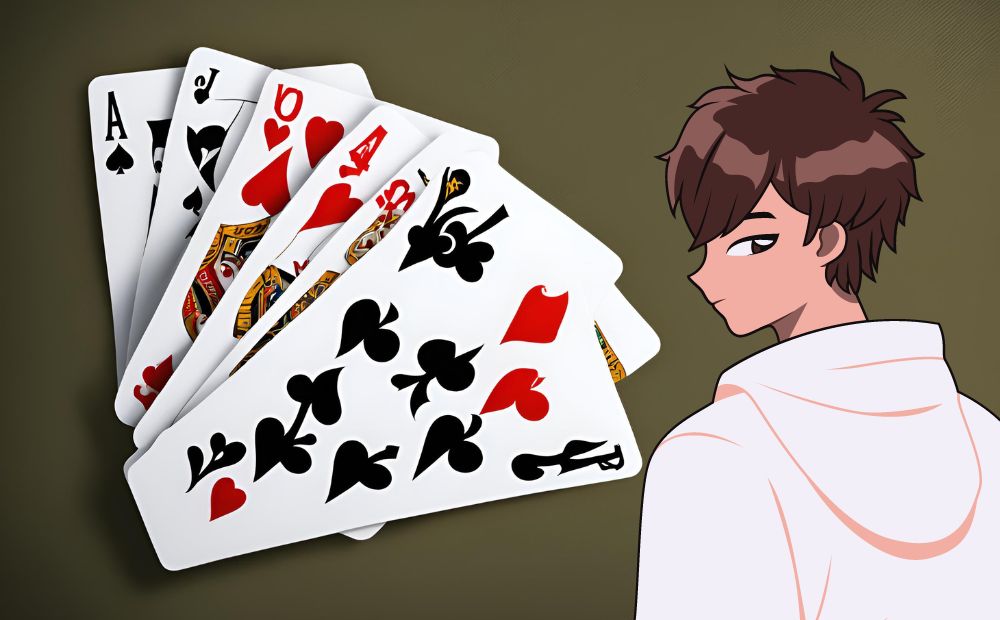Texas Hold’em is a game of thrilling possibilities and strategic decisions. While the allure of big hands like pocket aces is undeniable, even the humblest of starting hands can lead to victory. Today, we delve into the world of the lowest pocket pair in poker, affectionately known as pocket deuces (a pair of twos).
These tiny titans might seem insignificant initially but don’t underestimate their potential. Let’s explore how to navigate pocket deuces, from understanding their value to strategic play on the felt.
Ranking the Ranks: Understanding Pair Hierarchy
In the grand hierarchy of poker hands, pairs occupy a central spot. A pair is formed when two of your hole cards (the two cards you’re dealt face down) match in rank. The ranking of pairs is straightforward: the higher the matching value, the stronger the hand.
So, where do pocket deuces fit in? They hold the unfortunate distinction of being the lowest pocket pair in poker. This means they are outranked by any other pair – from pocket threes to the coveted pocket aces.
Deuce Power: Potential and Playstyle
Despite their low ranking, pocket deuces shouldn’t be dismissed entirely. Here’s why:
- Set Mining: The beauty of pocket deuces lies in their potential to become a set, also known as three of a kind. If one of the community cards (flop, turn, and river) matches your pocket pair, you’ve hit a set – a mighty hand that can dominate the table.
- Hidden Strength: Unlike higher-pocket pairs, pocket deuces can fly under the radar. Opponents might not suspect you hold a pair, allowing you to build the pot before unleashing your hidden strength.
However, playing pocket deuces effectively requires a specific approach:
- Positional Awareness: Your position at the table significantly impacts how you play pocket deuces. In late position (closer to the dealer), you have more information about your opponents’ actions before committing chips. This makes it more viable to call with the hope of hitting a set. Conversely, in early position (closer to the blinds), folding pocket deuces is often the wiser choice.
- Board Texture: The community cards significantly influence your decision-making. Suppose the flop reveals high cards or multiple-suited cards, increasing the chance of someone hitting a substantial hand. In such cases, folding pocket deuces might be prudent. However, a flop containing low cards or pairs offers a better shot at forming a winning set.
Mastering the Deuce: Advanced Strategies
Once you’ve grasped the basics, here are some advanced strategies to elevate your pocket deuces game:
- Calculated Aggression: While caution is often advised, well-timed aggression can be effective. If you suspect your opponents are weak or holding low cards, a well-placed bet with pocket deuces can build the pot and potentially scare them away.
- Pot Odds and Implied Odds: Understanding pot and implied odds is crucial for making informed decisions. Pot odds refer to the ratio between the amount you need to call and the pot size. Implied odds consider the potential amount you might win later in the hand if you hit your set. By analyzing these factors, you can determine if calling with pocket deuces is mathematically sound.
Beyond the Deuce: The Spectrum of Pocket Pairs
Pocket deuces represent the low end of the pocket pair spectrum. As you increase value (pocket threes, fours, and so on), the potential for solid hands increases. Pocket pairs in the middle range (fives, sixes, and sevens) offer a good balance between set mining potential and decent starting strength. High-pocket pairs (eights, nines, and above) are considered premium hands and can be played more aggressively.
FAQs
Are pocket deuces ever a good hand?
Absolutely! While they are the lowest pocket pair in poker, their potential to become a set and their ability to fly under the radar makes them a viable hand, especially with a good position and a favorable board texture.
When should I fold pocket deuces?
Folding is often the best option in an early position or against aggressive players. Folding might be wise if the flop reveals high cards or multiple-suited cards.
How can I play pocket deuces aggressively?
Calculated aggression can work if you suspect your opponents are weak. A well-timed bet can build the pot and scare them away. Analyze pot odds and implied odds to determine if calling is mathematically sound.
How do pocket deuces compare to other pocket pairs?
Pocket deuces are on the low end as you increase value (threes, fours), set mining potential, and start strength increase. Middle-range pairs (fives, sixes, sevens) offer a good balance. High-pocket pairs (eight and above) are premium hands.
What are some tips for mastering pocket deuces?
- Be patient – wait for the right opportunity.
- Consider your position at the table.
- Pay attention to the board texture.
- Understand pot odds and implied odds.
- Employ calculated aggression when appropriate
Final Words
Pocket deuces might be the lowest pocket pair in poker, but they shouldn’t be written off. You can transform these underdogs into surprising victors with a strategic approach, an understanding of pot odds, and a dash of calculated aggression. So, the next time you’re dealt pocket deuces, remember – even the smallest can be mighty!
READ ALSO: Jackpot City Casino Arena: Real Money Strategies for Every Game


2 thoughts on “Deuce Dilemmas: Conquering the Lowest Pocket Pair in Poker”